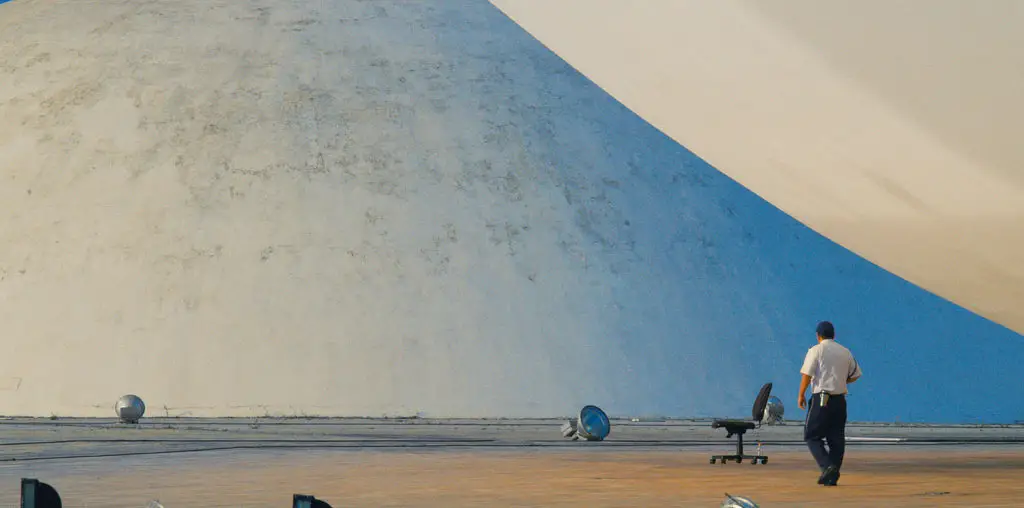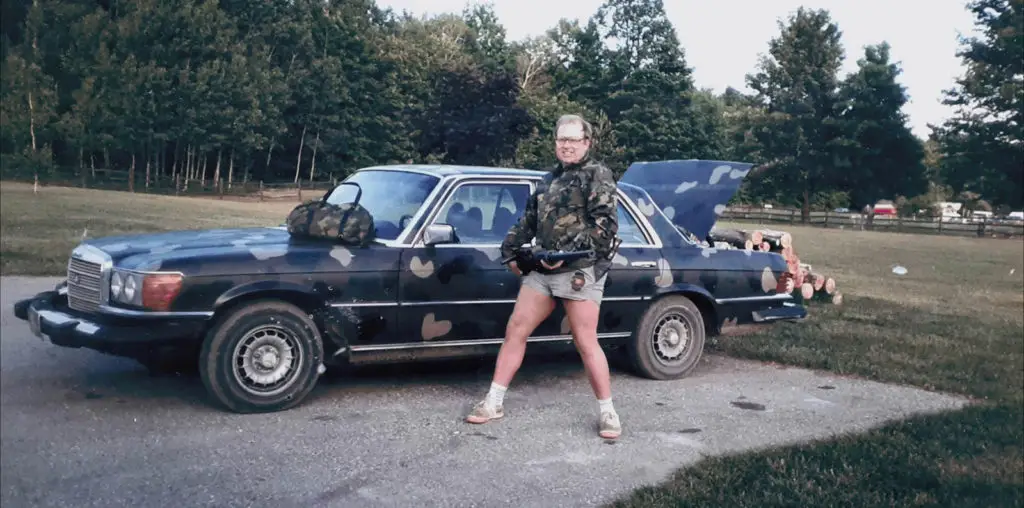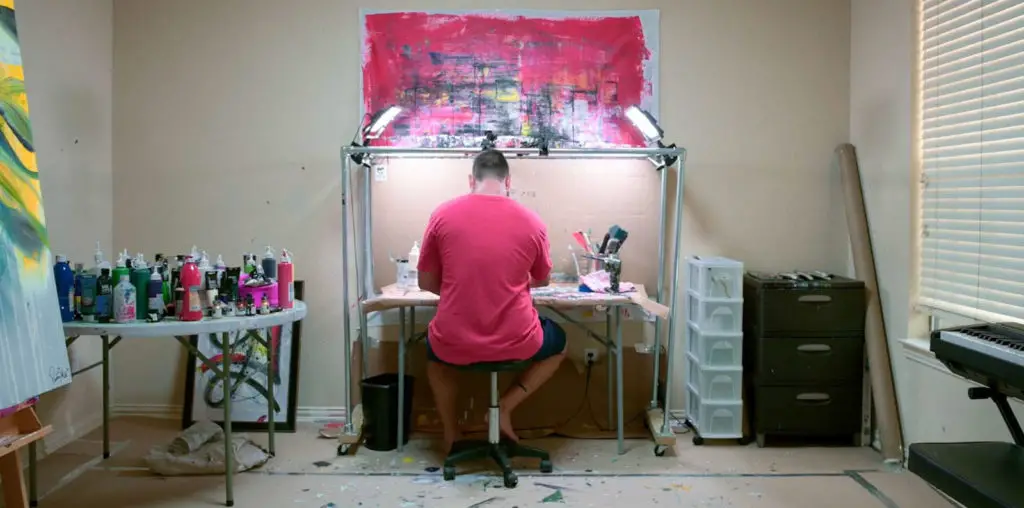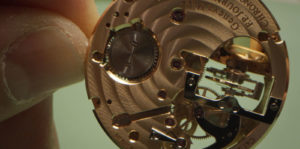
Ah, the intangibility of time! Time, like nature, relentlessly progresses, birthing and deteriorating, blossoming and decaying, apathetic and beautiful, often cruelly so. The universe was there long before humans showed up with endlessly evolving theories and preconceptions. Michael Culyba’s incisive, lyrical documentary Keeper of Time delves into the philosophical notion of time and how we created it to measure our ephemeral life spans. It also introduces us to “four of the best independent watchmakers in the world”: Philippe Dufour, Roger W. Smith, François-Paul Journe, and Maximilian Büsser.
It doesn’t come as a surprise that the director covers a great deal succinctly, considering the subject of his doc. He delves into astronomy, one of the film’s historians reducing our sequential perception to “our earth, our moon, our sun.” The filmmaker goes back to our ancestors who told time by the rising and setting of the sun, the phases of the moon. Culyba seems genuinely fascinated by the sheer variety of our time-telling devices through the centuries: constantly-evolving sundials, dragon clocks, water clocks, astronomical clocks, and even nature. “There’s time in every flower,” a particularly passionate interviewee says. Our own bodies, the beats of our hearts, are examined as timekeepers.
And then there are the watchmakers, trackers of time, its creators. The meticulousness and utmost precision with which the four central subjects construct their pieces is simply astonishing. Making a watch, with all its tiny moving parts, requires the utmost patience and attention to detail. One must ironically forget about time while making the very things that tell it. “An engineering lesson inside a history lesson inside a beautiful painting” is an apt description of a watch, intricately-constructed with miniature instruments, the process displayed in its full glory by Culyba.
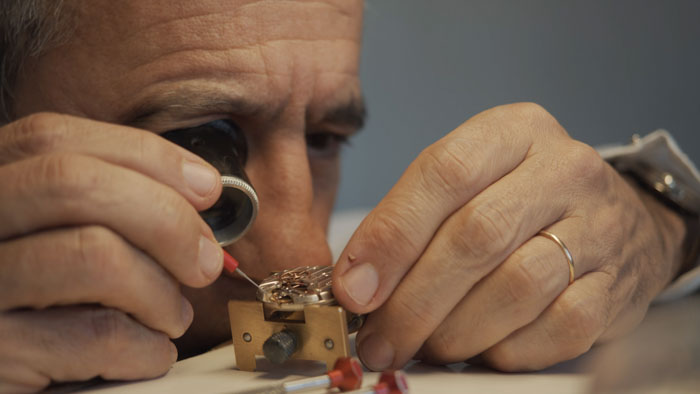
“…delves into the philosophical notion of time and how we created it…”
Keeper of Time highlights how the compelling watchmakers adore and respect their craft. Dufour fondly plays with the first watch he ever made, a particular highlight. “A wristwatch is alive,” Smith says. He reminisces about his early days establishing himself as a watchmaker and waxes poetic about the understated nature of British watches. Journe talks about discovering the perfect chime. And the forward-thinking ingénue Büsser, the quirkiest of the bunch, displays his off-kilter creations.
Culyba throws a retrospective glance at his childhood, imbuing the film with an intimate warmth, the nostalgia of watching memories on tape, an entrancing and oddly disturbing experience. He fills the doc with entertaining asides, such as the sheer diversity of clocks, like a bear playing a cello, or the world’s oldest working clock, which was built in 1308. He travels around the globe, chatting with a slew of connoisseurs, including an Antiquarian Horologist.
“Time is like a jewel,” someone says early on. “You can see time from multiple facets… but when you have to explain it, it becomes impossible.” Another person states that clocks reflect “the shape of the universe.” Time indeed is a heady concept; the more one thinks about it, the more mind-boggling it becomes. Running a mere 85 minutes, Keeper of Time resembles a tiny droplet, a grain of sand, a fraction of a fraction in the grand scheme of things, yet is more than worth your time.
To learn more about Keeper of Time, visit its official site.
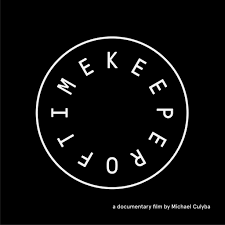
"…more than worth your time."
